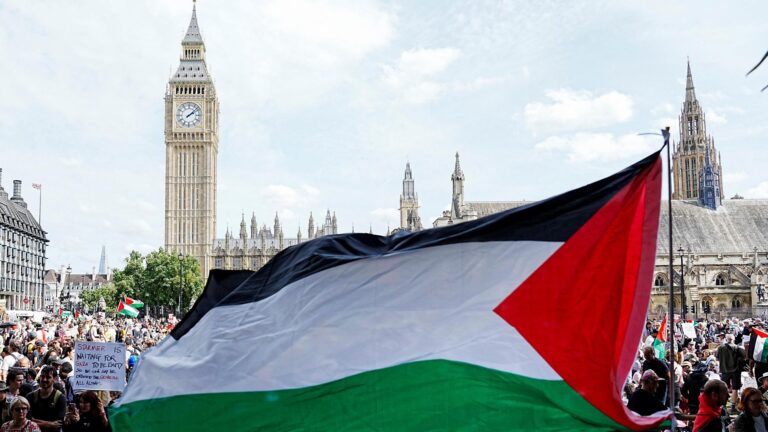France has officially recognised the State of Palestine, marking a significant development in international diplomacy and the Middle East peace process. In a formal announcement, the French government affirmed its support for Palestinian statehood, joining a growing number of countries acknowledging Palestinian sovereignty. This move is expected to have far-reaching implications for the Israeli-Palestinian conflict and the broader geopolitical landscape.
France’s Official Recognition of Palestinian Statehood Signals Shift in Middle East Diplomacy
France’s decision to officially recognize Palestine marks a significant departure from its previous diplomatic stance, signaling a bold move amidst the decades-long Israeli-Palestinian conflict. This recognition underscores growing European support for Palestinian sovereignty, reflecting a strategic recalibration in France’s Middle East policy that prioritizes dialogue and peaceful resolution. French officials have emphasized that this step aims to revive stalled peace talks and encourage negotiations based on mutual respect and international law.
The move has sparked mixed reactions worldwide. Supporters argue that France’s recognition provides political momentum to the Palestinian cause, potentially influencing other nations to reconsider their positions. Critics, however, warn that it might complicate France’s relations with Israel and some key Middle Eastern allies. The unfolding diplomatic nuances can be summarized as follows:
- European Union dynamics: France’s stance may prompt increased debate within the EU about collective policy towards Palestine and Israel.
- Regional response: Key Middle Eastern powers are assessing the impact on existing alliances and peace initiatives.
- International peace efforts: The recognition could act as a catalyst or an obstacle in upcoming UN debates and peace negotiations.
| Aspect | Potential Impact |
|---|---|
| Israel-France Relations | Possible diplomatic strain; calls for renewed dialogue |
| Palestinian Authority | Boost in international legitimacy and support |
| EU Foreign Policy | Pressure to unify stance towards Middle East peace |
| US Position | Monitoring closely; could adjust diplomatic approach |
Implications for Israeli-Palestinian Peace Talks and Regional Stability
The decision by France to formally recognise the Palestinian state marks a significant shift in the diplomatic landscape of the Middle East, carrying both potential opportunities and challenges for the Israeli-Palestinian peace process. This move could embolden Palestinian leadership and increase their leverage in forthcoming negotiations, prompting calls for renewed dialogue under more balanced terms. However, the recognition also risks heightening tensions between Israel and countries that view such actions as unilateral, potentially complicating efforts to resume direct peace talks.
Regional reactions highlight a complex mix of support and concern:
- Some Arab states applaud France’s stance as a step toward justice and a two-state solution.
- Israel and its allies warn that recognition without prior negotiations may derail peace efforts.
- International stakeholders urge caution, advocating for dialogue over diplomatic gestures to maintain stability.
| Stakeholder | Position on France’s Recognition | Potential Impact |
|---|---|---|
| Palestinian Authority | Welcomes recognition | Boosts diplomatic status |
| Israeli Government | Opposes recognition | May harden negotiation stance |
| EU Member States | Divided opinions | Influences EU’s foreign policy |
| US Administration | Cautiously monitors | Potential shift in diplomatic strategy |
Recommendations for International Stakeholders to Support Constructive Dialogue and Conflict Resolution
In order to foster meaningful progress towards peace, international stakeholders must prioritize inclusive diplomacy that actively engages both Israeli and Palestinian leadership alongside grassroots representatives. Facilitating forums that encourage open communication and mutual understanding will help break long-standing barriers of mistrust. Additionally, leveraging neutral mediators from respected international organizations can ensure that negotiations remain balanced and focused on practical outcomes rather than political symbolism.
Financial and humanitarian support should be strategically aligned with conflict resolution initiatives to build sustainable peace infrastructures within Palestinian territories. This involves funding education, infrastructure development, and economic empowerment programs that address the root causes of conflict. Support can be structured as follows:
| Area of Support | Purpose | Key Stakeholders |
|---|---|---|
| Education | Promote peace awareness and conflict resolution skills | UNESCO, NGOs, Local Schools |
| Economic Development | Create job opportunities and reduce poverty-linked tensions | World Bank, International Donors |
| Dialogue Facilitation | Support platforms for cross-community communication | EU, Neutral Mediators, Civil Society |
In Conclusion
France’s formal recognition of the Palestinian state marks a significant development in the long-standing Israeli-Palestinian conflict. As the international community continues to grapple with pathways to peace, France’s move signals a renewed push for diplomatic efforts and highlights the complexities faced by global actors in addressing this enduring dispute. The coming weeks will be crucial in observing how this decision influences regional dynamics and the responses from key stakeholders.




